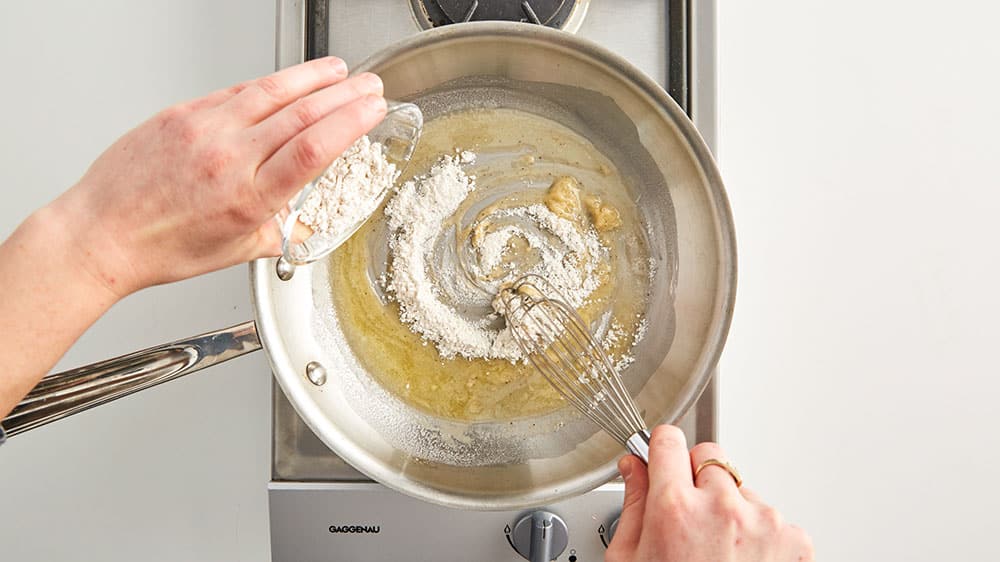Sauces play a crucial role in cooking, acting as the bridge that ties together the various components of a dish. A well-made sauce can elevate a simple meal into something truly special, enhancing flavors and adding depth to your culinary creations.
Below, we will explore six secrets to making perfect sauces for your main dishes. These tips will help you create delicious and versatile sauces that will impress your family and friends.
- Balancing Flavors
Achieving the right balance of flavors is essential for making a great sauce. Every sauce should have a harmonious mix of sweet, salty, sour, and bitter elements. This balance ensures that no single flavor overwhelms the others, creating a complex and enjoyable taste experience. Understanding how to adjust these flavors can help you fine-tune your sauces to perfection.
To balance flavors effectively, start by tasting your sauce frequently during the cooking process. If the sauce tastes too acidic, add a pinch of sugar to balance it out. If it’s too sweet, a splash of vinegar or a squeeze of lemon juice can add the necessary acidity. Salty flavors can be balanced with a bit of sweetness or acidity, while bitterness can be mellowed with a touch of salt or fat.
- Using Fresh Herbs and Ingredients
One of the key secrets to making perfect sauces is using fresh herbs and ingredients. Fresh produce can make a noticeable difference in the flavor and quality of your sauces. Herbs like basil, parsley, and cilantro add vibrant, aromatic notes that dried herbs simply can’t match. Similarly, fresh garlic, onions, and peppers provide a robust foundation for many sauces. When you use fresh ingredients, you get the most out of their natural flavors, resulting in a more intense and satisfying sauce.
Take chimichurri, for example. This sauce is made from fresh parsley, garlic, olive oil, vinegar, and spices. The freshness of the parsley and the sharpness of the garlic are what give chimichurri its distinctive, bold flavor. Using fresh ingredients ensures that the sauce remains vibrant and aromatic, perfect for complementing grilled meats or vegetables. By focusing on freshness, you can create sauces that are not only delicious but also packed with natural flavors.
- Using Proper Cooking Techniques
The techniques you use to prepare your sauces are just as important as the ingredients themselves. Proper cooking techniques can influence the texture, consistency, and flavor of your sauce, making the difference between a good sauce and a great one. Techniques like simmering, reducing, and emulsifying are fundamental in sauce-making.
For instance, simmering is a gentle cooking method that allows flavors to meld together slowly, creating a rich and cohesive sauce. This technique is particularly useful for tomato-based sauces or broths. Reducing a sauce involves cooking it down to concentrate its flavors and thicken its consistency, which is commonly done with wine or stock-based sauces. Emulsifying, on the other hand, involves mixing fat and liquid to create a smooth, creamy sauce, such as hollandaise or vinaigrette. Mastering these techniques can significantly enhance the quality and taste of your sauces, making them a standout component of your main dishes.
- Incorporating Aromatics
Aromatics are essential for building a robust flavor base in your sauces. Ingredients such as onions, garlic, leeks, and spices can transform a simple sauce into something complex and flavorful. These ingredients are typically sautéed or sweated in fat to release their flavors before other ingredients are added. This initial step is crucial because it lays the foundation for the entire sauce.
For example, in a classic marinara sauce, the aromatics – usually onions and garlic – are sautéed in olive oil until they are soft and fragrant. This process not only softens the aromatics but also allows their flavors to infuse the oil, which then permeates the entire sauce. Similarly, spices such as cumin, coriander, and paprika can be toasted in oil to release their essential oils and intensify their flavors. By properly incorporating aromatics, you can create a rich and flavorful base that enhances the overall taste of your sauce.
- Using Quality Base Ingredients
The quality of your base ingredients plays a significant role in the outcome of your sauce. Ingredients such as stocks, broths, and fats form the backbone of many sauces, so it’s essential to use high-quality products. Homemade stocks and broths, made from fresh bones and vegetables, offer a depth of flavor that store-bought versions often lack. Similarly, using high-quality butter, oils, and cream can elevate the richness and texture of your sauce.
When making a creamy Alfredo sauce, for instance, using real butter and heavy cream as opposed to margarine and milk makes a noticeable difference in flavor and consistency. High-quality Parmesan cheese also adds a genuine depth and umami flavor that cheaper substitutes can’t match. If making homemade stocks isn’t feasible, look for high-quality store-bought options that are low in sodium and free from artificial additives. By prioritizing quality in your base ingredients, you ensure that your sauces have a rich, authentic flavor that enhances your main dishes.
- Finishing Touches and Adjustments
The final adjustments and finishing touches can take your sauce from good to exceptional. These last-minute additions, such as fresh herbs, citrus zest, or a splash of cream, add brightness, depth, and complexity to your sauce. They also allow you to fine-tune the flavor and consistency to perfection.
For example, adding a handful of chopped fresh basil to a tomato sauce just before serving can add a burst of fresh, aromatic flavor. A squeeze of lemon juice or a sprinkle of lemon zest can brighten a heavy cream sauce, cutting through the richness and adding a refreshing tang. Similarly, a drizzle of high-quality olive oil or a pat of butter can add a silky finish to many sauces, enhancing their texture and flavor. By making these finishing adjustments, you can ensure that your sauce complements and elevates your main dish.
Conclusion
Making perfect sauces requires attention to detail and a good understanding of the key elements involved. By using fresh herbs and ingredients, balancing flavors, employing proper cooking techniques, incorporating aromatics, using quality base ingredients, and adding thoughtful finishing touches, you can create sauces that elevate your main dishes to new heights. These secrets are the foundation of great sauce-making and will help you enhance your culinary skills.




